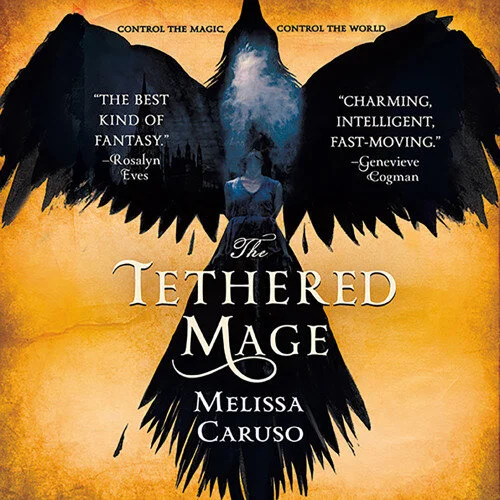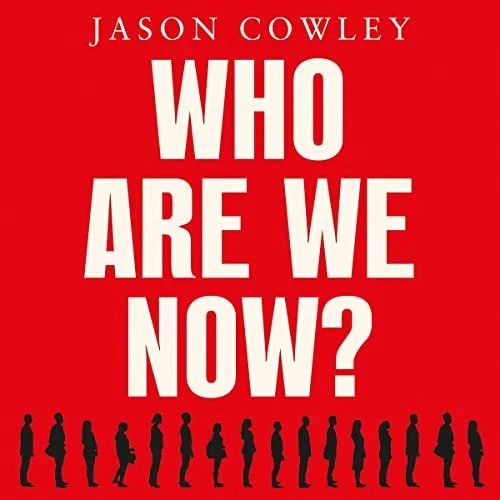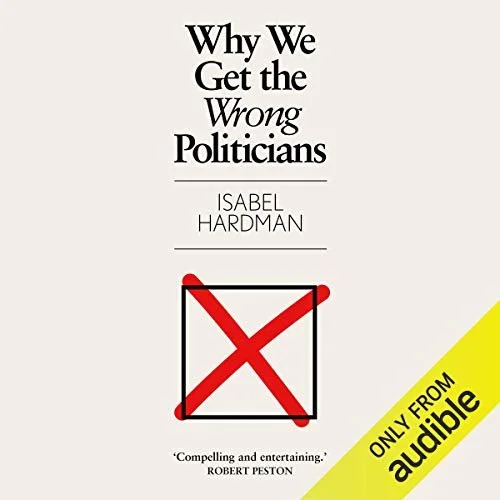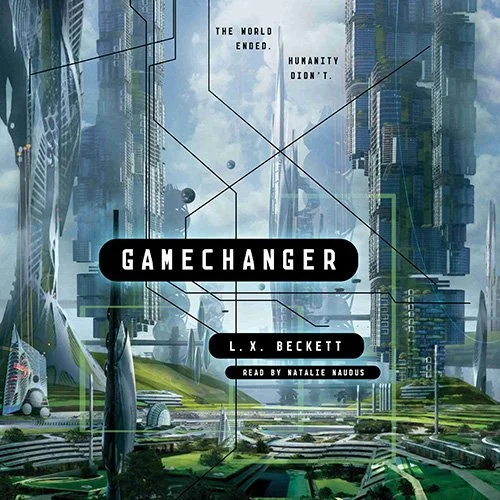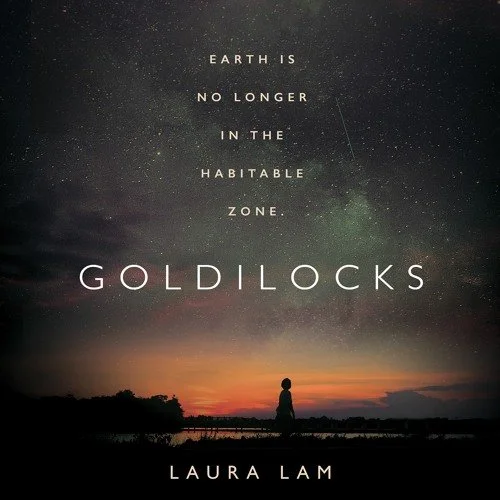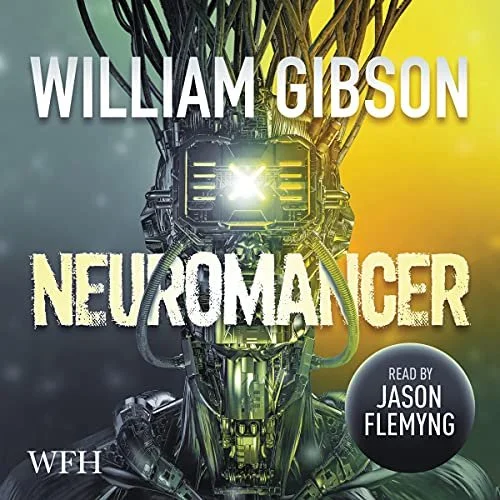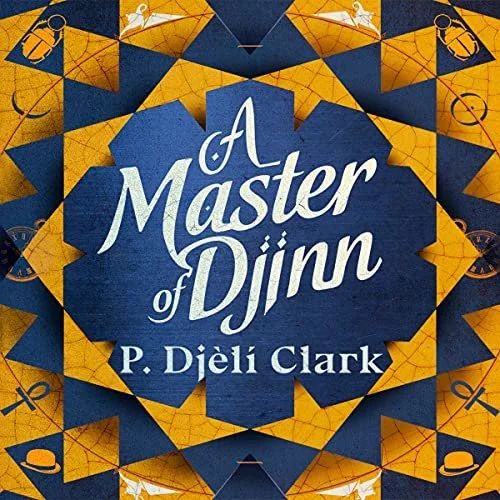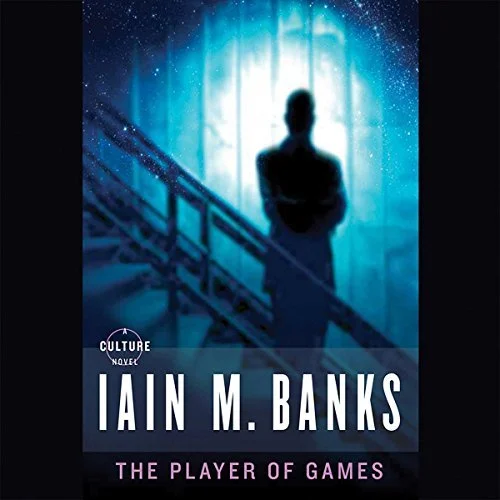What can The Tethered Mage teach us about the writing of Mary Wollstonecraft?
Melissa Caruso’s novel The Tethered Mage is set in a world that resembles the past of our world, but is different in several crucial ways. One of the most striking things about the world of the novel is not that it contains characters who can create fire, or lightning, or magical weapons - although these are present - but that it’s set in a version of the past where men and women were equal.
In the world of The Tethered Mage, there is no distinction between the roles that society has created for men and women. Women still wear corsets and live in nuclear families with men, but there is no gendering of roles in government, the military, science or the arts. The novel features women generals, politicians, scientists and leaders. There is more gender equality in the novel than in 21st century Britain and it’s set in a society that has yet to invent the steam engine or universal suffrage.
It’s difficult to be precise about what historic period The Tethered Mage evokes for its fantasy world. It bears many similarities to Europe of the 18th Century. There are cannons and muskets, scientists investigate the properties of nature using something close to the scientific method and power is held by hereditary rulers, but held in check by a civil society as represented by a body of wealthy landowners and merchants.
Falcons and Falconers
Despite this being a vision of the 18th Century with equality between the genders, there are other hierarchies present. The wealthy hold power over the poor and those born to privilege have power over those born to humble circumstances. This seems familiar to our understanding of the 18th Century, but the world of the novel has another crucial divide not present in our world, a divide between those who can wield magic and those who can't.
The magic system of the novel has an interesting twist. Mages - those who can control fire, or the weather, or create rare elixirs, or weave the flesh of humans or animals - are controlled via a magical item known as a jess. A jess binds the mage to a non-magical guardian who controls when they can use their powers. In this relationship the magical party is called a Falcon and the non-magical party is called a Falconer (presumably because they remove the cap and release the Falcon’s power).
Like all other divisions in society, this divide is wrapped up in power. To understand this division between the Falcon and Falconer, we can look at a thinker from our world’s 18th Century.
Mary Wollstonecraft and The Enlightenment
Mary Wollstonecraft was an 18th century British writer, feminist and radical thinker. She led a radical life by the standard of any age. She went to France shortly after the French Revolution, at great personal risk to herself, to witness the birth of liberty but ended up witnessing The Terror first hand. She wrote many books, including A Vindication of the Rights of Women, in which she critiques the roles that 18th Century society had given women.
Wollstonecraft believed the relations between men and women were a symptom of a wider problem, that one half of society controlled the faculty of reason and the other half had the domain of feeling. Wollstonecraft was writing during the Enlightenment when reason was considered the highest virtue.
Most of the Enlightenment's most prominent figures were men and believed that reason was the domain of men, and the feelings and emotions were the domain of women. Jean-Jacques Rousseau highlighted this division in his book Emile, which Wollstonecraft was a fierce critic of.
The domain of reason
Wollstonecraft linked this relationship to that of a tyrant and his court. One person has all the power and the others have to use what they are left with to protect themselves. This unequal relationship corrupts everyone involved in it. Wollstonecraft described life in the 18th Century, where men had power over women (and in The Enlightenment power meant the domain of reason) and women used what was left to them (the domain of feeling) to defend themselves from the power of men.
In the world of The Tethered Mage, reason is not considered gendered as it was in our 18th Century, as in this society reason has not been claimed by one gender. However, reason is the domain of the non-magical Falconers, who hold power over the magical, whereas feeling is the domain of the Falcons, who take what is left to them and use it to protect themselves from the power of the Falcons.
Zaira is a Falcon who can control fire. At several points in the novel, she is told that her fire can easily get out of hand and destroy entire cities. In the opening chapter, she is bonded to Amalia, daughter of a powerful noble and the novel’s protagonist. Amalia now has control over when Zaira can use her fire. Zaira believes that this control of her life is unfair. Amalia and other Falconers try to convince Zaira why being tethered is in everyone’s best interest, including her own.
Wollstonecraft and Hobbes
What’s interesting about these scenes, is that Amalia uses reason to appeal to Zaira: it’s in the best interest of everyone that we isolate the magical and send them to a place known as The Mews, where they live in what could be considered comfortable for a life in the 18th Century. Whereas Zaira uses emotion in her counter argument: this is an unfair restriction on her life. Amalia has all the power and uses reason. The domain of emotion is all that’s left to Zaira.
This argument relates back to the previous article in this series, which discussed Thomas Hobbes’s idea of The Sovereign. Wollstonecraft argued the division between the domain of reason and the domain of emotion corrupts Sovereigns, just as it corrupts relations between men and women, as Sovereigns still have human relationships.
Hobbes’s idea of The Sovereign limited the spread of politics to as few aspects of life as possible. In Hobbes’s time, during the English Civil War and the 30 Years War, political disagreements were a matter of routine and horrific violence, so limiting politics made sense. By giving The Sovereign say over some aspects of life, it leaves us free to enjoy every other aspect of it.
Sovereigns and Falcons
Wollstonecraft was critical of this idea. She believed that you cannot keep politics out of every aspect of life. If you are a woman living under the dominion of a man or a child living under the dominion of parents, then the aspects of your life that are and aren't political are not up to you. The limiting power of The Sovereign only affects some people.
We saw how this worked in Days of Hate by Aleš Kot, Danijel Žeželj and Jordie Bellaire. When a Sovereign in a future American riven by civil war politicises race, immigration status and sexual orientation this touches every aspect of the characters’ lives and thus their life becomes entirely political. In the American civil war of Days of Hate, this is as deadly as it was during the English Civil war.
Wollstonecraft’s argument about women in the 18th Century applies to Falcons in The Tethered Mage. A Falcon cannot choose the aspects of their life they have control over. They are forced to live in The Mews and serve their military masters. Falcons have more freedom than slaves, but so did women in the 18th Century. Both lack the right to make decisions about their lives.
Wollstonecraft and revolution
Part of Amalia’s argument is that this is the way things have always been done in her country. The Falcons are tethered, but they’re kept well and then serve the country when it’s needed - including Zaira unleashing her fire against their enemies. This debate over tradition mirrors arguments about tradition that Wollstonecraft had in her time.
Wollstonecraft was critical of the writing of Edmund Burke, who was a philosopher, author and MP, as well as having the dubious honour of being the founder of modern Conservatism. Burke wrote against The French Revolution and for a society based on sentiment and tradition. He claimed he wanted people to be free to follow their hearts.
Wollstonecraft attacked this idea for being unjust. She argued that it was unjust because it left many people without control of their lives and subject to the whims of others. Wollstonecraft thought that we needed a revolution against this. When the French Revolution occurred, she supported it and headed over to France to see a new society be built around the values of liberty and rationality. This was an incredibly brave thing to do and she soon found herself caught up in the violence and bloodshed that followed the revolution, known as The Terror. Wollstonecraft was more than someone who wrote about revolution, she lived her principles.
Falcons and education
Wollstonecraft wrote against the society based on tradition and sentiment that Burke defended. She wanted to change society into something that was better for women and for children, the people who were subjected to the power of others. This mirrors the argument that Zaira has with Amalia, when Zaira argues that she as a Falcon shouldn’t be subjected to power of the Falconers and Amalia defends the tradition of her society.
Wollstonecraft had many ideas about how to improve society to aid the relations between men and women (or those with the power over reason and those with the power over feeling). She believed the solution lay in better education. Wollstonecraft was an educator herself and set up a school in Stoke Newington (now a part of London). This controversial statue “for” Mary Wollstonecraft stands near where her school was.
The Falcons in The Tethered Mage are certainly educated - one of them is a scientist - however we don’t know if their education extends to aspects not related to being a Falcon. This is akin to how women in Wollstonecraft’s time where only taught needle work and dancing, all that they needed to find a husband - i.e. their role in society.
Perhaps more education, for both Falcons and Falconers would change the society of The Tethered Mage, just as Wollstonecraft thought that reforming education of girls and boys would change our society, by helping everyone escape from the traditions that Burke defended and Wollstonecraft believed were so damaging. Maybe it would one day lead to a world where Falcons don’t need to be controlled by jesses, as Falconers can appeal to their reason.
Wollstonecraft exposed the problem with fundamentally unequal relationships in society. Any society where one group holds power over another group, or where one group claims the power of reason and the other is left only with the fiery tempers of emotion. We can see this dynamic in our history and in novels that show a world with equality between the genders, which still have big divides in society.
I want to say thank you to David Runciman for his lecture on Mary Wollstonecraft in the podcast Talking: Politics History of Ideas, which describes her life, philosophy and writing that I drew on heavily for this article.

